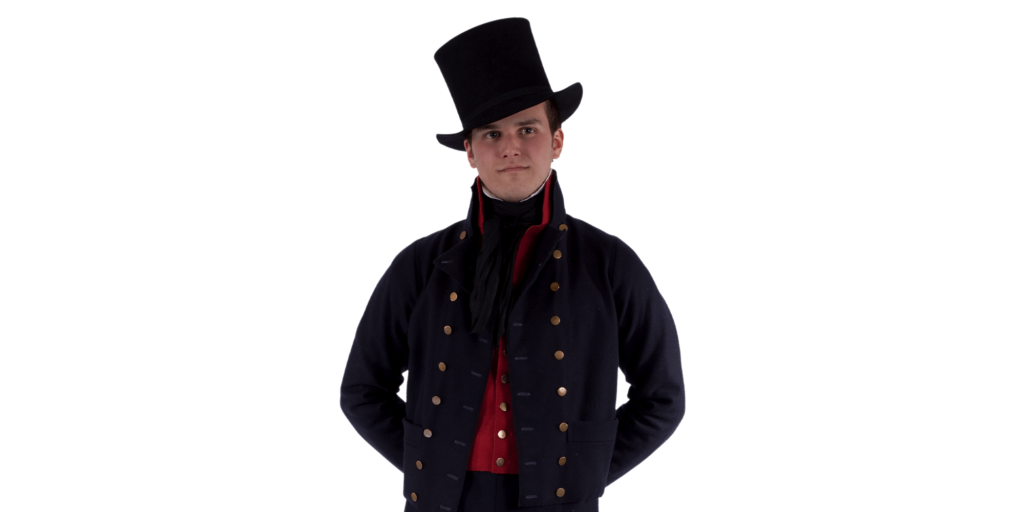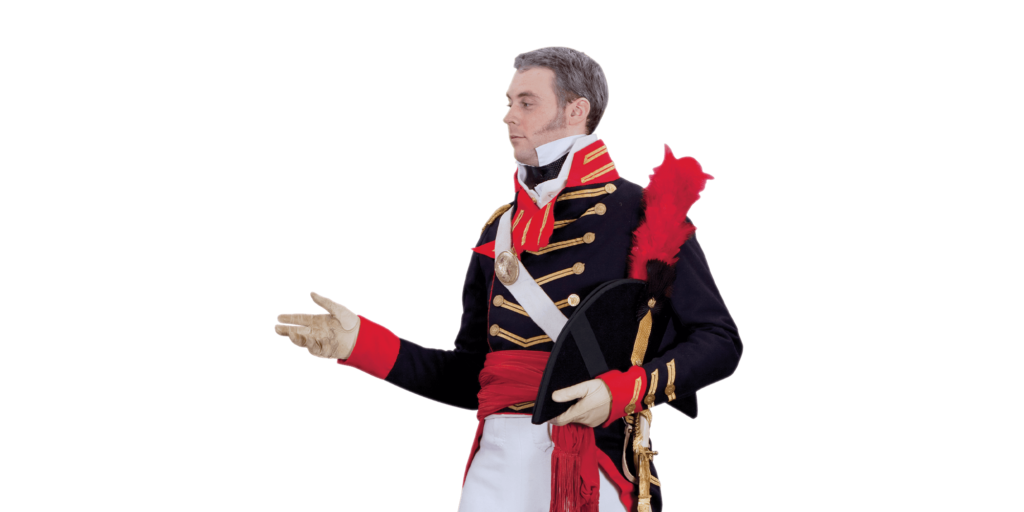Join USS Constitution’s War of 1812 crew!
All strong and brave souls are welcome to apply. We will soon set sail against the enemy for
“free trade and sailors’ rights.”
This is your chance to serve your country and see if a sailor’s life is for you.
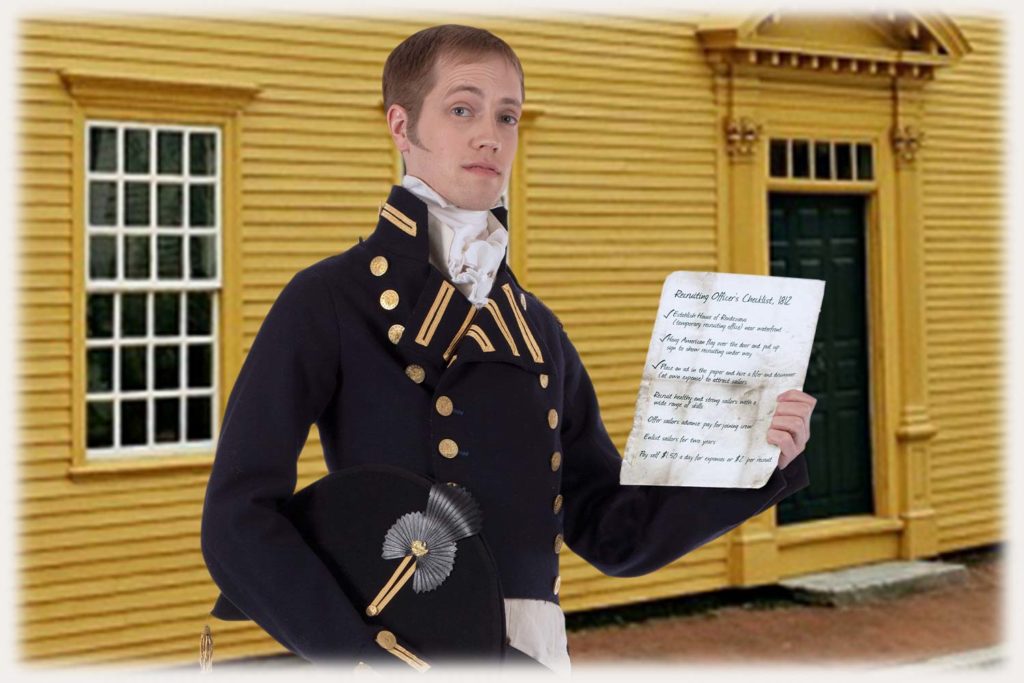
“Charles W. Morgan at your service.
I joined the Navy when I was 18 as a midshipman. Today, at 22, I stand before you, a lieutenant.
I am charged with the important task of recruiting sailors for USS Constitution.”
Interested in becoming a sailor aboard USS Constitution during the War of 1812?
Answer the recruiter’s questions to see if a sailor’s life is for you.
Why did sailors join the crew in 1812?
Meet these 1812 crew members to find out.
"Advance wages will pay off my debt to my landlord."
- John Love, Ordinary Seaman
"My friend told me that the Navy offers respectable jobs and equal pay to free Black men."
- James Bennett, Ordinary Seaman
"If my husband signs on, he won't spend his days in the grog shop."
- Sailor's Wife
"No greater honor than to serve my country."
- Richard Fletcher Dunn, Able Seaman
"Our fishing fleet can’t get past the British blockade. I'm hoping my sailing skills will serve me well in the Navy."
- Joseph Pope Cheever, Sailor
"Prize money for us, and buckets of it when we beat those Brits. Here's to victory!"
- Sailor
Congratulations you are officially part of the crew.
Now see how you compare to the rest of your crewmates.
How tall are you?
The average height was 5 feet 6 inches.
How old are you?
The average age was 27, but a few sailors were under 15 and over 50.
What color are your eyes?
The most typical eye color was gray (shade of blue).
What color is your hair?
The majority of sailors had brown hair worn short or tied back in a short queue (braid).
Are you a boy or man?
Only males served in the U.S. Navy in 1812. Female nurses began serving in 1908. Officers and enlisted women began serving in 1942.
Are you Black or of African descent?
7-15% of sailors were free Black men.
Do you have any tattoos?
5-10% of sailors had tattoos. Designs often included initials, anchors, hearts, or a cross.
Do you have any marks?
A seafaring life left many sailors with scars, burns, and missing fingers.
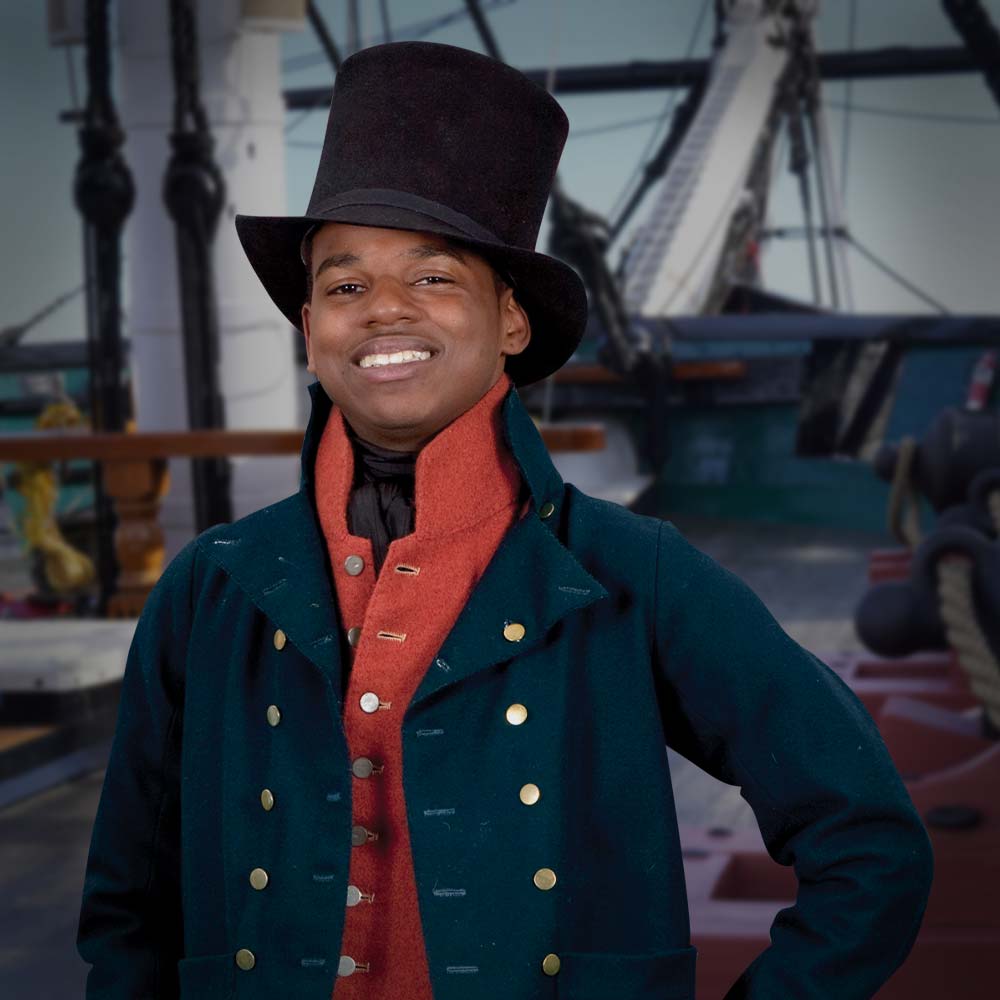
Were there Black sailors in 1812?
Historians estimate that 7-15% of sailors in the U.S. Navy during the War of 1812 were free Black men.
Seafaring was one of only a few jobs that offered free Black men a respectable career with equal pay. Though racism wasn’t absent at sea, free Black sailors were integrated into the shipboard community – sleeping, eating, and working side by side with their white counterparts.
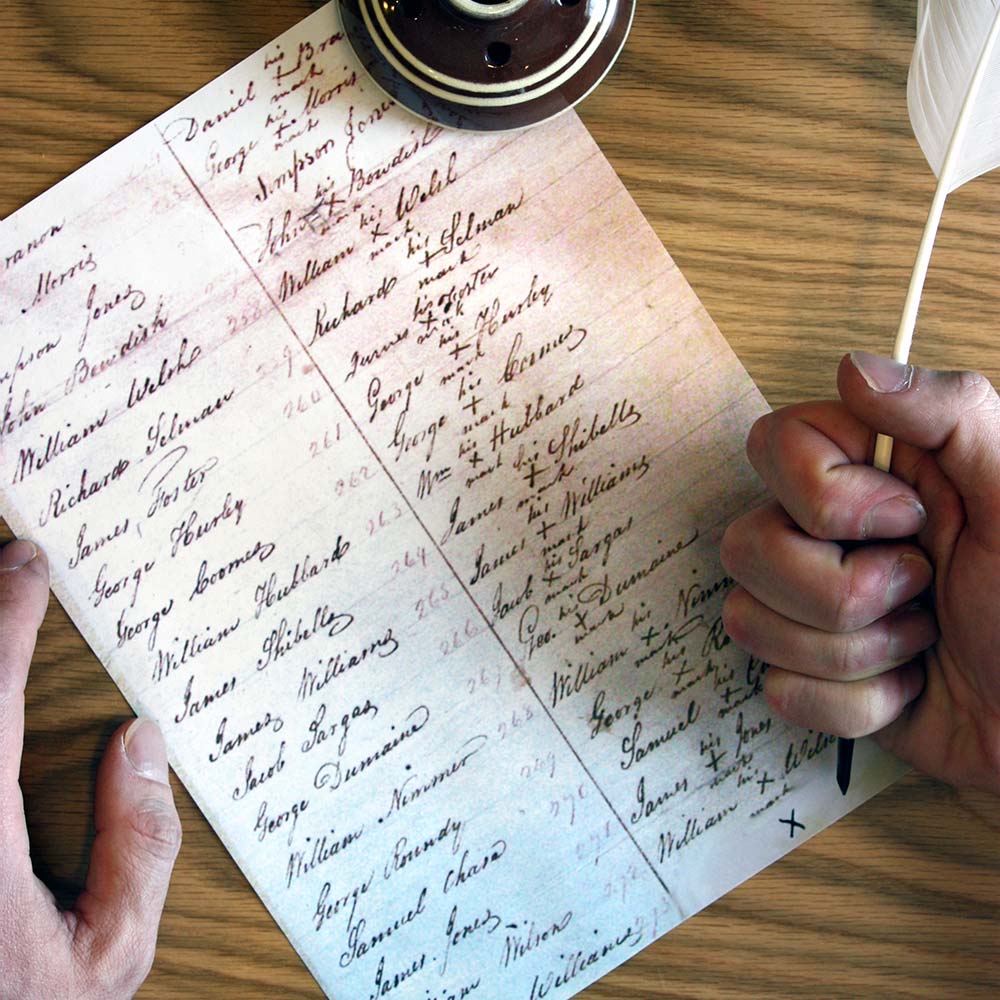
Could sailors read and write?
According to War of 1812 sailor Samuel Leech, “Many of my shipmates could neither read nor write…[and] were dependent on the kindness of others, to read and write for them.” On board Constitution in 1813, only about one in five sailors could sign their name.
It appears the ability to sign one’s name was closely related to seafaring experience. The more experienced sailors (with more time at sea) were less likely to be able to sign their name. Why do you think this was?
Philip Brimblecum, Able Seaman
What cheer, shipmate! I’m Philip Brimblecum. The recruiting officer here says I can join Constitution as an able seaman. I’m just 26 years old, but I’ve seen my share of hard knocks, many of ‘em at the hands of the British. I can’t wait to have a crack at 'em.
Jesse Williams, Ordinary Seaman
I was born free in Pennsylvania. I've been to sea for a piece, and joined Constitution's crew as an ordinary seaman in August 1812.
I stand 5 feet 6 inches tall and some describe me as stout.
David Blanchard, Boy
David Blanchard here. To the Navy I'm a boy 'cause I know nothing of ships and sailors, but I'm 17 years old. Not a boy at all! I joined Constitution's crew in 1811 and haven't thought of going home to New Hampshire since.
I have brown hair and blue eyes, and I stand 5 feet 8 inches tall.
